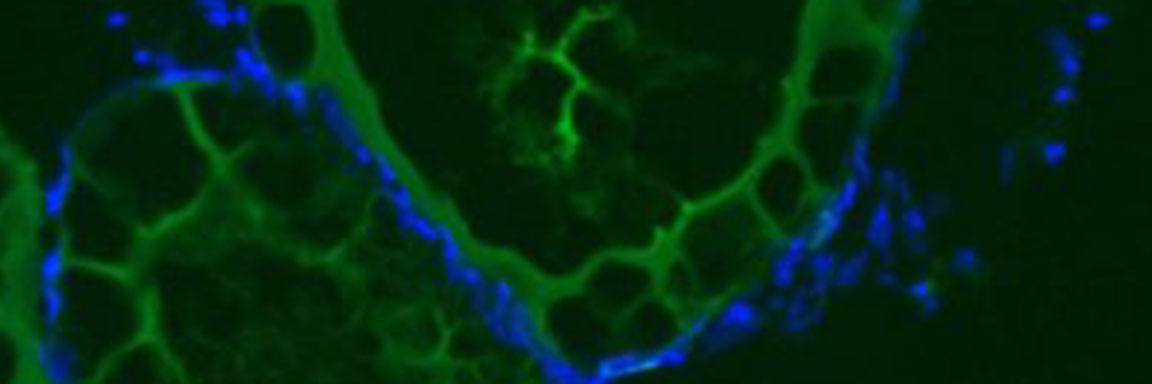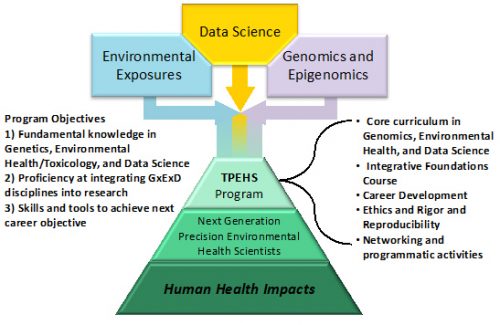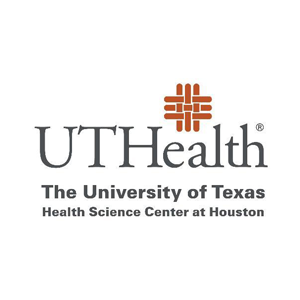
Precision Environmental Health Sciences (TPEHS)
(Funded by the National Institute of Environmental Health Sciences, T32 ES027801)

Program Director:
Cheryl Lyn Walker, PhD Director, Center for Precision Environmental Health Professor, Molecular & Cell Biology, and Medicine, Baylor College of Medicine
Program Co-Directors:
Craig Hanis, PhD Professor, Epidemiology, Human Genetics & Environmental Sciences, and Human Genetics Center School of Public Health, UT Health Science Center at Houston
Richard H. Finnell, PhD Professor, Center for Precision Environmental Health, Baylor College of Medicine
Rui Chen, PhD Professor, Molecular and Human Genetics, Baylor College of Medicine
Program Administrators:
Karen Ethun, Executive Director, Gulf Coast Consortia/Keck Center
Vanessa Herrera, Assistant Director, Grant Programs, Gulf Coast Consortia/Keck Center
Click Here for more information about the Center for Precision Environmental Health (CPEH).
IN THE NEWS – Program Director, Dr. Cheryl Walker, is awarded the 2019 Society of Toxicology Distinguished Toxicology Scholar Award. (Read more)
The Call for Predoctoral and Postdoctoral Applications has ended.
(Our next call for applications will be announced here.)
The goal of the new, interdisciplinary Training in Precision Environmental Health Sciences (TPEHS) is to train the next generation of environmental health scientists working at the interface of genetics, environmental health and data science (GxExD). Historically, training in these disciplines has been siloed, and few researchers have the training needed to incorporate all three into today’s precision environmental health research. The TPEHS is designed to meet the need for this interdisciplinary training by preparing the next generation of environmental health science (EHS) researchers to make important research advances and improve our understanding of the environment influences on health and disease.
Program Director Cheryl Walker, PhD, and three Co-PDs — Craig Hanis (Genetics), Richard Finnell (Environmental Health) and Rui Chen (Data Science) — provide leadership for the program and expertise in GxExD research. The Training Plan has been designed to meet TPEHS Program Objectives for trainees to
1) Acquire fundamental knowledge in Genetics, Environmental Health, and Data Science; 2) Become proficient at integrating concepts of GxExD into their research; and 3) Gain the necessary skills and tools to leverage TPEHS training to achieve their next career objective.
List of Participating TPEHS Departments
| Baylor College of Medicine | UTH-GSBS | UTH-SPH |
| Molecular and Cellular Biology | Quantitative Sciences | Epidemiology, Human Genetics and Environmental Sciences |
| Molecular and Human Genetics | Genetics and Epigenetics | Biostatistics and Data Science |
| Quantitative & Computational Biosciences (QCB) |

A Core Curriculum for PhD students includes didactic coursework to acquire competencies in Environmental Health/Toxicology, Genetics, and Data Science in Year 1, and a Foundations Course on Integrative Concepts of Precision Environmental Health in Year 2; postdoctoral trainees audit this course in their first year in the Program. This didactic training is complemented by Career Development activities (including an Individual Development Plan), training in Responsible Conduct of Research (ethics, rigor and reproducibility) and programmatic/networking opportunities (including peer-to-peer mentoring) that enhance the training environment and build cohesion among trainees. For postdoctoral trainees, this includes the opportunity for industry-based internships with the Health and Environmental Sciences Institute (HESI) and/or preparation for academic careers via grant-writing workshops and submission of a K99/R00 application.
The Center for Precision Environmental Health (CPEH), created in 2016 with Dr. Walker as its founding and current Director, was established to understand causes of disease through research at the intersection of genetics, environmental health and computational biology. The goal of the CPEH is to increase our understanding of how our environment influences health and risk for disease. It will focus on how early life exposures to certain environmental factors permanently change the body’s physiological processes to increase risk for cancer and metabolic diseases. CPEH, located on the 13th floor of BCM’s Alkek Building, provides an additional home base for TPEHS.
TPEHS Overview The need for Training in Precision Environmental Health. Interdisciplinary research on gene:environment interactions (GxE) has exponentially increased our understanding of environmental contributions to human health and disease, as evidenced by the dramatic increase in GxE publications from a few hundred to over a thousand in just the last five years. Research at the intersection of genes and the environment has contributed to the fields of environmental and public health and significantly advanced our knowledge of environmental factors and genetic contributors to disease. Indeed, the four non-communicable diseases accounting for 68% of deaths worldwide for the past five years ̶ cardiovascular disease, cancer, diabetes and chronic lung disease ̶ have all been shown to have both environmental and genetic etiologies. In recognition of this, GxE research is included as a central pillar of the NIEHS Strategic Plan.
However many knowledge gaps remain in our understanding of how GxE contributes to disease, including how to assess the “exposome”, the genetic/epigenetic basis, and molecular mechanisms responsible for environmental disease, and how other host factors such as age, physiology and life style modify disease susceptibility. Importantly, a precision environmental health research approach, using increasingly large and complex “omics” data sets, will be key to filling these knowledge gaps and moving from a population-level understanding of environmental causes of disease to characterizing individual disease risk.
Accordingly, many insights into environmental causes of disease will depend on precision environmental health research and our ability to convert large, complex datasets into new knowledge, the basis of the BD2K initiative at NIH. Our ability to rapidly and comprehensively interrogate the genome with next-generation sequencing (NextGen) tools, coupled with the nearly unlimited opportunities to appropriately and efficiently mine the tremendous data sets available via public databases such as TCGA and ENCODE, heralds a new era in understanding how the environment and the genome (and their variations) impact human health. Indeed, genomics and environmental health research are producing ever-larger data sets, illuminating the new reality that today’s environmental health researchers must be able to incorporate big data science into their research. What is needed to meet this challenge are researchers trained to study environmental influences on health and disease through the lens of GxE using big data applications.
The Training in Precision Environmental Health Sciences (TPEHS) meets this need. Research at the interface of genetics, environment and data science (GxExD) holds enormous promise for improving our ability to understand and prevent disease to improve human environmental health. The goal of the TPEHS is to train the next generation of environmental health scientists who can work at the interface of genetics, environmental health and data science. The TPEHS aligns well with the NIH Precision Medicine Initiative, an emerging approach to disease treatment and prevention that takes into account individual variability in the genes, environment, and lifestyle of each person. This initiative capitalizes on our ability to understand variation in genotype/epigenotype at an individual level with great precision and, combined with the field of environmental health, promises to move our understanding of differences in inter-individual susceptibility to environmental disease in exciting new directions using, large-scale biologic databases, powerful methods for characterizing patients, and computational tools for analyzing large data sets. However, very few investigators have the breadth of education and training needed to incorporate genetics, environmental health, and data science into their research. It is therefore imperative that we develop a scientific workforce that is well trained at the cross-section of these three disciplines, with interdisciplinary GxExD training, to meet the increasing demand for precision EHS research. Because the impact of GxExD research is not limited to the academic arena but extends to non-academic settings and careers in areas such as policy, education, communication, industry, and civic organizations, it is also apparent precision environmental health scientists must be prepared for versatile workforce opportunities.
Benefits of the program. By participating in this program, trainees will now have a co-mentored project by mentors in complementary research areas to leverage their training and research in these diverse areas. Additionally, each NIH-sponsored one-year fellowship appointment provides 12 months of stipend support ($24,324 for predocs or $48,432 and above for postdocs, per NIH FY2018), plus partial support for tuition, fees and health insurance (not fringe) and travel. The trainee’s primary mentor/department is responsible for the fringe, and the remainder of the stipend and health insurance (up to the institutional level). Some trainees will have the opportunity to compete for reappointment (for a total of two years) if progress is satisfactory. All NIH-Funded postdoctoral fellows are subject to the terms and conditions of the NRSA Payback Agreement.
TPEHS Application Information – IMPORTANT: The application deadline has been extended to Friday April 19, 2019. All application material, including recommendation letters MUST be received by COB, April 19, 2019. Click here for the Spring 2019 Application form. Please read the TPEHS Curriculum and Program Requirements section thoroughly before filling out the application. Also please note that all NIH-Funded postdoctoral fellows are subject to the terms and conditions of the NRSA Payback Agreement.
ELIGIBILITY:
The second Call for Applications is now open. Eligible applicants include:
- Predoctoral applicants from Baylor College of Medicine or UT-Health Science Center who are US citizens or permanent residents.
- Postdoctoral applicants from Baylor College of Medicine or UT-Health Science Center who are US citizens or permanent residents.
Proposed Timeline for Spring 2019:
Feb 11 Call for Applications
Apr 19 Application Deadline (extended from April 1)
May 7 Applicant Interviews
May 15 Notification of Award to Applicants
Jun 1, 2019 Appointment period begins
Applicants must select a primary mentor and a co-mentor(s) in complementary research areas from the TPEHS Training Faculty, listed here. NOTE: Invited candidates and both mentors MUST be available to attend the interviews on May 7, 2019.
Trainees appointed to (and supported by) this training grant – T32ES027801- must be US citizens or permanent residents (documentation required).
Questions about the application or eligibility requirement? Contact Vanessa Herrera at herrera@rice.edu.
Important: We are committed to providing equal opportunity in training for individuals with disabilities and individuals from racial and ethnic groups who are currently under-represented in STEM fields. We welcome applicants from all qualified trainees, regardless of ethnic/racial status or disability status. All TPEHS participating institutions are ADAAA compliant and have offices of disability support services that provide accommodations and support services to trainees, faculty, staff and visitors.
APPLICATION INSTRUCTIONS
(NOTE: Application form may not open in Chrome unless you’ve disabled Chrome’s built-in PDF viewer in your settings.)
IMPORTANT: You are strongly encouraged to contact your Institutional Representative from the list of TPEHS Steering Committee members listed on the application form prior to completing an application. The applicant or the applicant’s mentor should reach out to the designated Steering Committee member at the applicant’s institution to discuss the applicant’s background and project prior to completing an application.
- Download and complete the TPEHS Application form and submit via email (along with below components) to Vanessa Herrera (herrera@rice.edu). You must save or download the application form to your computer FIRST, then fill out the application COMPLETELY: GRE and/or MCAT scores as well as undergraduate and graduate GPAs are required.
- Request Mentor Recommendation Letters – The applicant’s mentors must submit their Recommendation Letters via direct email to Vanessa Herrera. These letters should evaluate the applicant in terms of his/her suitability for a research career in this field and should specifically address the following areas:
– Scientific background and prior training – Research experience and skills – Quantitative skills, aptitude and training – Work ethic – Communication skills – Ability to work with others – Mentor’s approval of applicant’s Mentoring Plan
- Secure two additional Letters of Recommendation from people other than your mentors. Recommenders should submit their letters directly to Vanessa Herrera.
- Submit Transcripts from all undergraduate and graduate coursework (Official preferred, Unofficial accepted) to Vanessa Herrera.
- Submit a current resume (CV) outlining your professional work experience and history to Vanessa Herrera.
*NOTE Project Information document is a component of the TPEHS application form which should include the following sections:
– Project Description (max 750 words) – Layperson’s Project Description (max 250 words) – Mentoring Plan (max 500 words) – Grant Support – Publications * This document (word or pdf format) should accompany the application form submission to Vanessa Herrera.
INTERVIEW PROCESS Selected candidates will be invited to interview with the TPEHS Program Directors and Steering Committee, and both mentors are expected to attend. Candidates will make a brief oral presentation of no more than 10 minutes with a maximum of 6 slides + title slide+ acknowledgment slide.
Your presentation should provide an overview of your proposed research project and address the following:
- The interdisciplinary nature of your project and the approaches you propose to use to incorporate the genetics, environmental health and data science aspects of this research.
- The importance of your project to the broad area of environmental health science. Though this may seem obvious to you, it may not be clear to the diverse interdisciplinary Steering Committee reviewing you.
- The roles that both your primary mentor and co-mentor will play in the proposed research / mentoring plan. In particular, the committee is interested in hearing how the two mentors together will enable you to conduct research that could not be accomplished with either alone.
- Your timeline for conducting the proposed research and completing the required courses and electives. This timeline should be realistic and unique to your situation. Reviewers are looking for the feasibility of your project and will expect that you have considered alternate directions or outcomes.
This interview is critical to robustly assess the applicant’s suitability for the TPEHS Program and potential for success during and after the Program, including the ability to communicate his/her science. The Steering Committee will discuss each applicant and make final selections based on merit. All applicants will be notified via email.
We will provide a laptop for the presentation. Invited candidates should email a PDF of their presentation slides to (herrera@rice.edu) 24hrs before the interview, and bring a backup on a USB or flash drive in a PC compatible format.
TPEHS Curriculum and Program Requirements
The Core Curriculum for TPEHS PhD students consists of didactic coursework in Genetics, Environmental Health/Toxicology, and Data Science during Year 1 of TPEHS support, and a Foundations Course on Integrative Concepts of Precision Environmental Health during Year 2 of TPEHS support; postdoctoral trainees may audit this course in their first year in the Program. Students may select from the following course options in each category:
- Genetics Requirement: Genetics A/B (BCM: GS-GS-503/504), Human Genetics (BCM GE-411), or Genetics and Human Disease (UTH GS11 1013 or PHS 2815)
- Environmental Health Requirement: Toxicology I/II (UTH GS13 1063 or PH 2175/77), Others TBA
- Data Science Requirement: Biostatistics for Biomedical and Translational Researchers (BCM GS-GS-532), Computational Mathematics for Quantitative Biomedicine (BCM GS-SB-401), or Applied Statistical Analysis I and II (UTH: PH 1820/21)
- TPEHS Foundations Requirement: This Foundations Course in Integrative Precision Environmental Health is currently being developed as part of the UTH-SPH curriculum and will be offered in Fall 2019
Additional approved TPEHS Electives
The curriculum for each student will be considered by the Steering Committee and recommendations will be made during the interview if alternate or additional courses are needed, based on the student’s experience and interest. The following is a list of approved TPEHS electives.
TPEHS Program Requirements:
In conjunction with the above curriculum requirements, all TPEHS trainees are required to:
- Attend the Center for Precision Environmental Health seminar series as well as the Friday afternoon Keck Seminar Lecture Series (BIOC 592; 1 credit hr) every semester.
- Attend a minimum of TWO Career Development activities (including an Individual Development Plan) over two-year appointment period on the TPEHS program.
- Complete formal training in Responsible Conduct of Research (ethics): BCM GS-GS-528-531 Responsible Conduct of Research or Postdoctoral Ethics Training; UTH-SPH PHM5010 Ethics in Public Health and Health Care or Postdoctoral Ethics Training.
- Attend a Rigor and Reproducibility workshop at least once during your appointment period on the TPEHS program.
- Participate in programmatic/networking opportunities (including peer-to-peer mentoring) that enhance the training environment and build cohesion among trainees. For PhD students, this may include attendance at your institutional Graduate Career Day, and/or attendance at appropriate regional and national scientific meetings and workshops. For postdoctoral trainees, this includes the opportunity for industry-based internships with the Health and Environmental Sciences Institute (HESI) and/or preparation for academic careers via grant-writing workshops and submission of a K99/R00 application.
- Present your research at the TPEHS Annual Retreat (Date, TBD) and present a poster at the Keck Center Annual Fall Research Conference (held annually in the Fall).
- Participate in monthly trainee meetings and other TPEHS programmatic meetings, as requested.
TPEHS Steering Committee
Additional leadership and inter-institutional coordination are provided by a Steering Committee of TPEHS faculty. Drs. Walker, Chen, Finnell, and Hanis will serve as leaders of the Committee. Additional members (see below) were selected based on their substantial research and mentoring experience, as well as dedication to enriching the training of young scientists. Each is engaged in research applicable to genetics, environmental health and/or data science.
Steering Committee Members
- Alanna Morrison, PhD, Chair and Professor of EHGES* and the Director of the Human Genetics Center at UTHealth-School of Public Health (UTH-SPH). Her research focuses on elucidating the genetic basis of complex disease, primarily cardiovascular disease and its risk factors, and on the application of statistical methodology.
- Elaine Symanski, PhD, Professor of EHGES* at UTH-SPH and Chair of the NIH-funded Southwest Center for Occupational and Environmental Health. Her research involves developing quantitative methods to model occupational and environmental exposures, performing retrospective exposure assessments for workplace contaminants, and investigating health effects of occupational and environmental exposures.
- Meng Wang, PhD, Associate Professor of MHG** at Baylor College of Medicine. Her pioneering research is at the forefront of genetics, metabolism and aging. In 2016, she received an NIH Pioneer Award to test a new conceptual idea for metabolite-directed signaling communication. She also received a Howard Hughes Medical Institute Faculty Scholar grant in 2016 and the O’Donnell Award in Medicine in 2017 for her discovery of new genetic and molecular insights into how humans age.
- Chris Amos, PhD, Professor of Medicine-Epidemiology & Population Sciences at Baylor College of Medicine. His research is focused on understanding the basis of inherited predisposition to cancer and other complex diseases. He is currently part of a program that seeks to identify people at risk of developing cancer based on their genetic make-up and other factors.
- Zhongming Zhao, PhD, Professor of EHGES* at UTH-SPH and founding director of the Center for Precision Health. He has more than 18 years of bioinformatics and systems biology research experience with >250 papers in these areas. His research interests include the application of NextGen sequencing technologies in precision medicine. * Epidemiology, Human Genetics & Environmental Sciences ** Molecular and Human Genetics
Steering Committee responsibilities are to:
- engage in TPEHS activities and promote the TPEHS to PhD students and postdoctoral fellows within their respective institutions by holding orientation sessions and by participating in recruiting activities
- review TPEHS applications and select applicants for interview
- interview applicants and their mentors and select trainees for appointment
- assess trainee progress annually via written reports from trainees and co-mentors
- conduct annual in-person progress reviews with active trainees and plan and participate in the TPEHS annual retreat
- assess and evaluate TPEHS requirements and accomplishments to ensure trainees are meeting educational objectives and obtaining the research experience and professional development training envisioned by the TPEHS.
TPEHS Training Faculty – all members
TPEHS Training Faculty – by Research AreaTPEHS Participating Departments – by Institution
| Baylor College of Medicine | UTH-GSBS | UTH-SPH |
| Molecular and Cellular Biology | Quantitative Sciences | Epidemiology, Human Genetics and Environmental Sciences |
| Molecular and Human Genetics | Genetics and Epigenetics | Biostatistics and Data Science |
| Quantitative & Computational Biosciences (QCB) |








